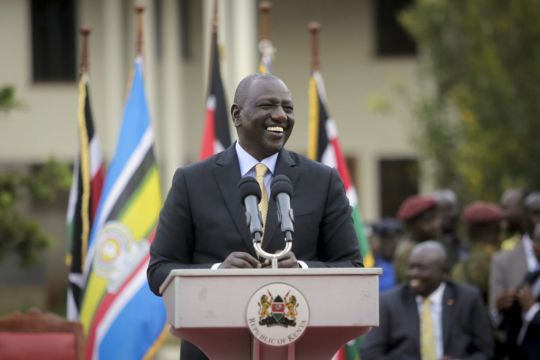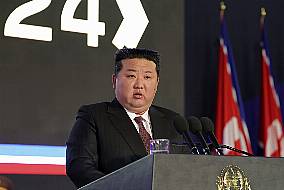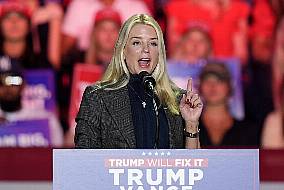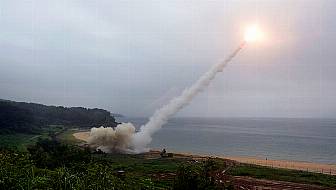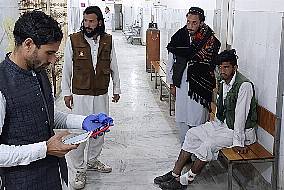William Ruto has been sworn in as Kenya’s president.
Mr Ruto narrowly won the August 9th election in East Africa’s most stable democracy over longtime opposition figure Raila Odinga.
The Kenyan supreme court last week rejected challenges to the official results.
Mr Ruto had been the deputy to outgoing president Uhuru Kenyatta but had a bitter split with Mr Kenyatta that left the two not speaking for months at a time.
On Tuesday, the audience cheered as the two shook hands at Kasarani Stadium.

However, the occasion was marred after scores of people were injured in a crush after they forced their way into the stadium.
A medic said a fence at the Nairobi stadium fell down after people pushed it and about 60 were injured, though the number may rise.
“We had to treat some with minor injuries. Most of them were rushed to the main hospital in Nairobi,” Peter Muiruri said. There were no reports of deaths.
People tried to dodge baton-wielding security forces. “I was beaten by the police after trying to get inside,” said one witness, Benson Kimutai.

Mr Ruto is taking power in a country heavily burdened by debt that will challenge his efforts to fulfil sweeping campaign promises made to Kenya’s poor.
With the transition of power, Kenya’s presidency moves from one leader indicted by the International Criminal Court to another.
Both Mr Kenyatta and Mr Ruto were indicted over their roles in deadly 2007 post-election violence but the cases were later closed amid allegations of witness intimidation.
The August election was peaceful in a country with a history of political violence. Chaos erupted only in the final minutes when the electoral commission publicly split and prominent Odinga supporters tried to physically stop the declaration of Mr Ruto as the winner.
Mr Ruto’s campaign had portrayed him as a “hustler” with a humble background of going barefoot and selling chickens by the roadside, a counterpoint to the political dynasties represented by Mr Kenyatta and Mr Odinga.

But Mr Ruto received powerful political mentoring as a young man from former president Daniel arap Moi, who oversaw a one-party state for years before Kenyans successfully pushed for multi-party elections.
Mr Ruto now speaks of democracy and has vowed there will be no retaliation against dissenting voices.
The losing candidate, Mr Odinga, is setting himself up to be a prominent one. In a statement on Monday, he said he would skip the inauguration and later will “announce next steps as we seek to deepen and strengthen our democracy”.
Though Mr Odinga also asserted that “the outcome of the election remains indeterminate,” a spokesman told The Associated Press it was “highly unlikely” he would seek to declare himself the “people’s president” as he did after losing the 2017 election.
